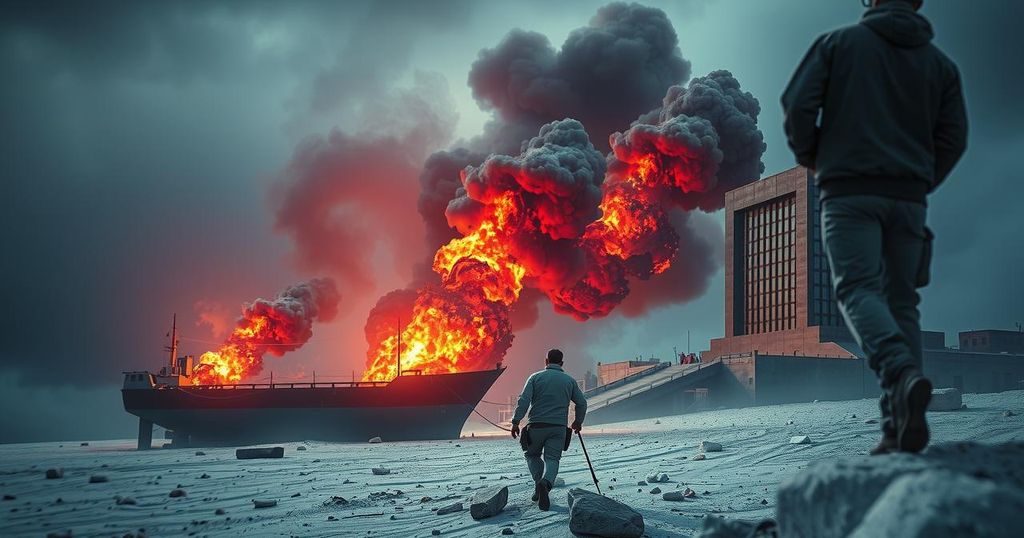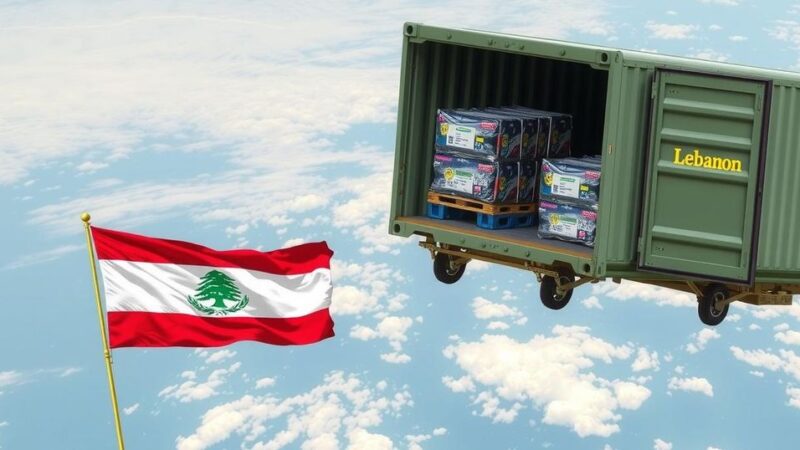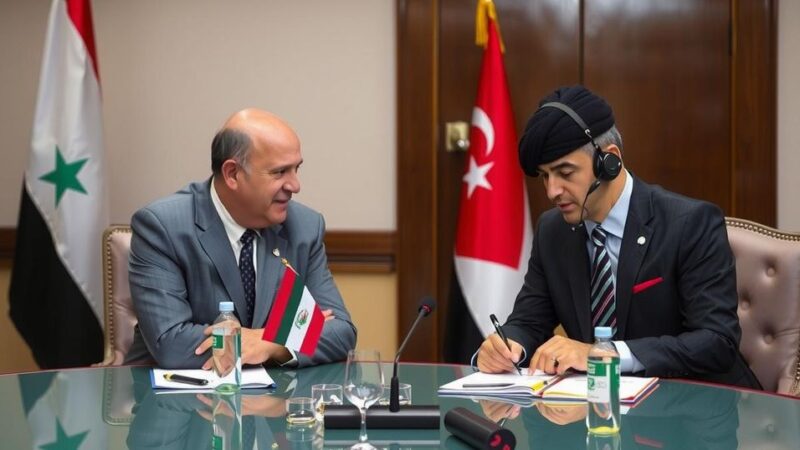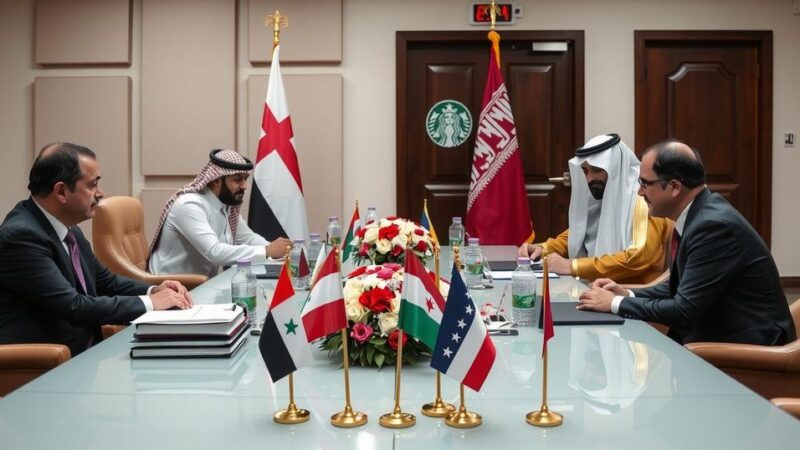Tensions are escalating between Iran and Afghanistan over dam construction and water rights, as Iran accuses the Taliban government of violating agreements. The Taliban plans to build multiple dams to alleviate water scarcity for agricultural irrigation, while Iran demands adherence to existing treaties. The dispute highlights the complexities of shared water resource management amid regional conflicts.
Amid the ongoing tensions between Pakistan and Afghanistan, a significant dispute has arisen between Iran and Afghanistan concerning river water resources, particularly in light of dam construction initiatives. The Iranian government has taken a stern stance, asserting that the Taliban administration is breaching established agreements and misappropriating water intended for Iranian use. In response, Afghan officials have denied Iran’s allegations, sparking an escalating conflict over the management of shared water resources—a long-standing issue affecting both nations.
The Taliban-led government in Afghanistan has expressed intentions to fill the Pashdan Dam in the Herat province, alongside the construction of two additional dams on the Farah River. Notably, the process of filling the Pashdan Dam, positioned on the Karokh River, has recently commenced. Concurrently, the construction of the Bakhshabad Dam in Farah is advancing quickly, with plans for the Kaj Samad Dam starting soon. These projects aim to channel water for agricultural purposes, addressing the acute water scarcity that has plagued Afghanistan due to prolonged periods of conflict and terrorism.
Iran’s Foreign Ministry has reacted strongly, claiming that these dam projects contravene bilateral agreements and undermine Iran’s rights to shared water resources. Ismail Baghaei, spokesperson for the Iranian Foreign Ministry, has urged the Taliban to remove obstacles that prevent water from reaching Iran, emphasizing the necessity of upholding treaty obligations. He articulated that water usage should comply with established agreements, international customary laws, and the principles of good neighborliness.
Despite Iran’s references to its rights concerning existing agreements, some analysts contend that no formal treaty governs the usage of the Harirod and Farah rivers. According to Mohammad Rafiq Shaheer, Head of the Herat Expert Council, Afghanistan’s urgent need for water resources is apparent, especially in the context of the country’s war-torn economy and agricultural landscape. He stated that the country must exercise its right to utilize water resources to combat unemployment and secure food supplies for its populace, indicating the necessity of prioritizing this development.
The article discusses the rising tensions between Iran and Afghanistan, primarily related to water resources and the construction of dams. The dispute has emerged against the backdrop of ongoing skirmishes between Afghanistan and Pakistan, highlighting regional instability. The Taliban’s initiatives to create dams aim to provide irrigation for agriculture, crucial for addressing water scarcity exacerbated by decades of conflict. The discussion surrounding water rights reveals the complexities of bilateral relations between Iran and Afghanistan, particularly in the context of existing treaties and resource allocation.
In summary, the disagreement between Iran and Afghanistan over water resource management underscores the fragile relationship between the two nations. As Afghanistan embarks on ambitious projects to develop its agricultural sector, the assertion of water rights will continue to be a contentious issue. Iran’s claims regarding treaty violations will need to be reconciled with Afghanistan’s pressing need for water to foster economic recovery and food security. Overall, constructive dialogue and adherence to mutual agreements will be crucial for resolving this dispute peacefully and ensuring resource sustainability.
Original Source: www.india.com







